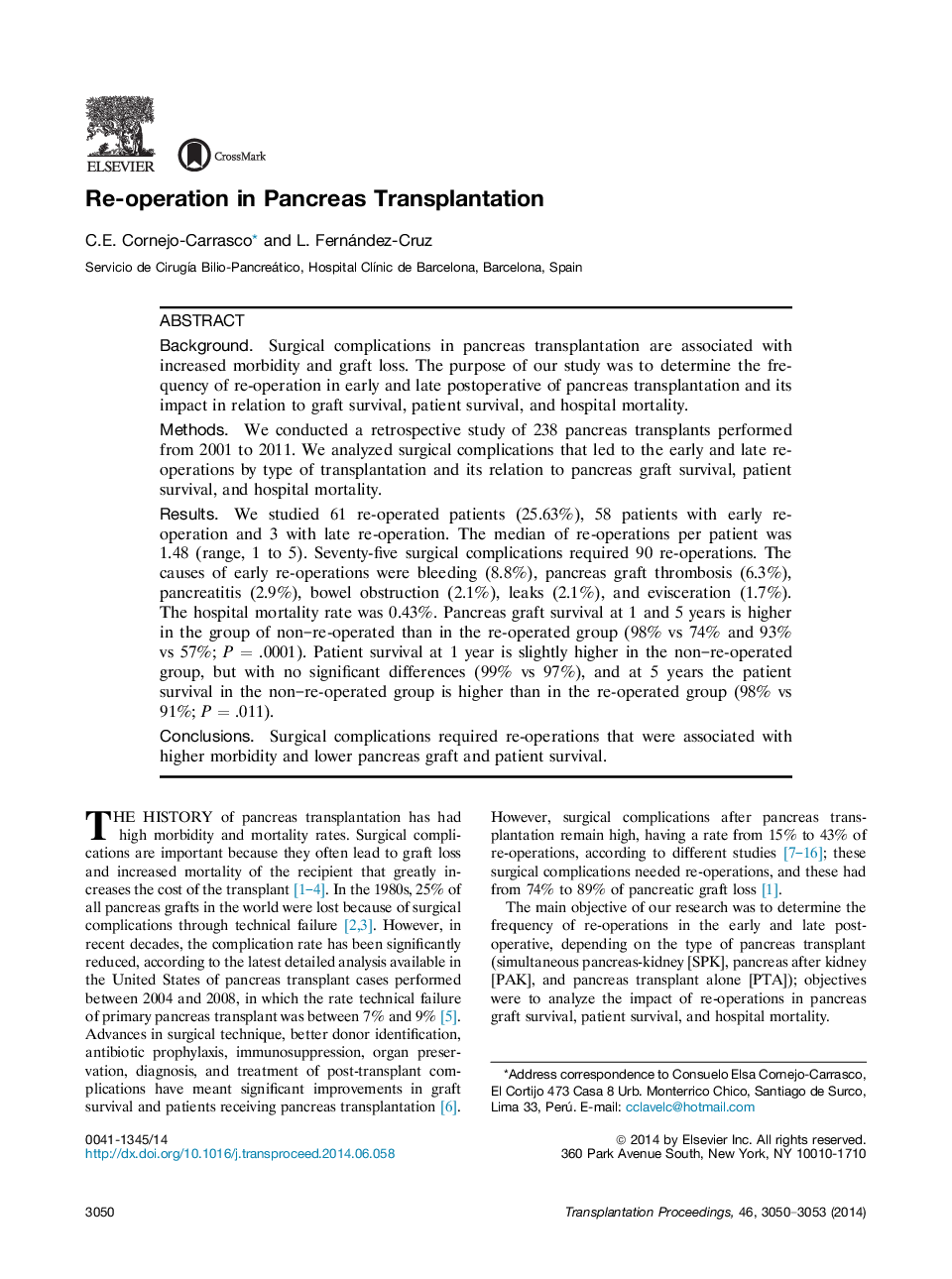| Article ID | Journal | Published Year | Pages | File Type |
|---|---|---|---|---|
| 4256612 | Transplantation Proceedings | 2014 | 4 Pages |
BackgroundSurgical complications in pancreas transplantation are associated with increased morbidity and graft loss. The purpose of our study was to determine the frequency of re-operation in early and late postoperative of pancreas transplantation and its impact in relation to graft survival, patient survival, and hospital mortality.MethodsWe conducted a retrospective study of 238 pancreas transplants performed from 2001 to 2011. We analyzed surgical complications that led to the early and late re-operations by type of transplantation and its relation to pancreas graft survival, patient survival, and hospital mortality.ResultsWe studied 61 re-operated patients (25.63%), 58 patients with early re-operation and 3 with late re-operation. The median of re-operations per patient was 1.48 (range, 1 to 5). Seventy-five surgical complications required 90 re-operations. The causes of early re-operations were bleeding (8.8%), pancreas graft thrombosis (6.3%), pancreatitis (2.9%), bowel obstruction (2.1%), leaks (2.1%), and evisceration (1.7%). The hospital mortality rate was 0.43%. Pancreas graft survival at 1 and 5 years is higher in the group of non–re-operated than in the re-operated group (98% vs 74% and 93% vs 57%; P = .0001). Patient survival at 1 year is slightly higher in the non–re-operated group, but with no significant differences (99% vs 97%), and at 5 years the patient survival in the non–re-operated group is higher than in the re-operated group (98% vs 91%; P = .011).ConclusionsSurgical complications required re-operations that were associated with higher morbidity and lower pancreas graft and patient survival.
